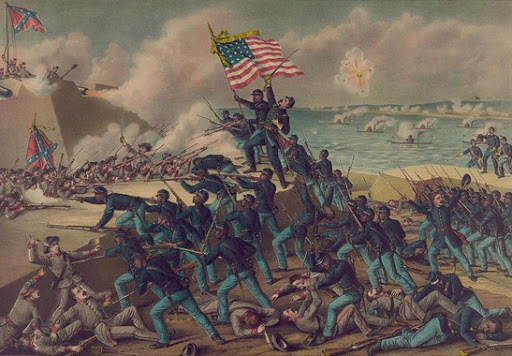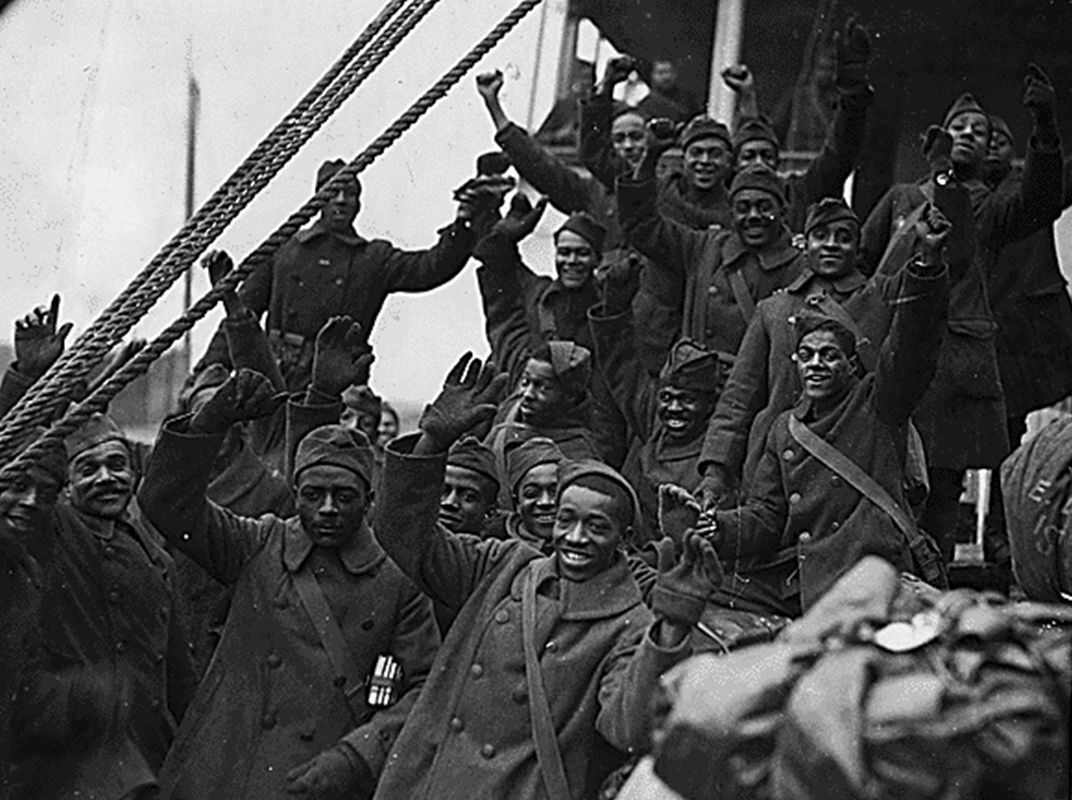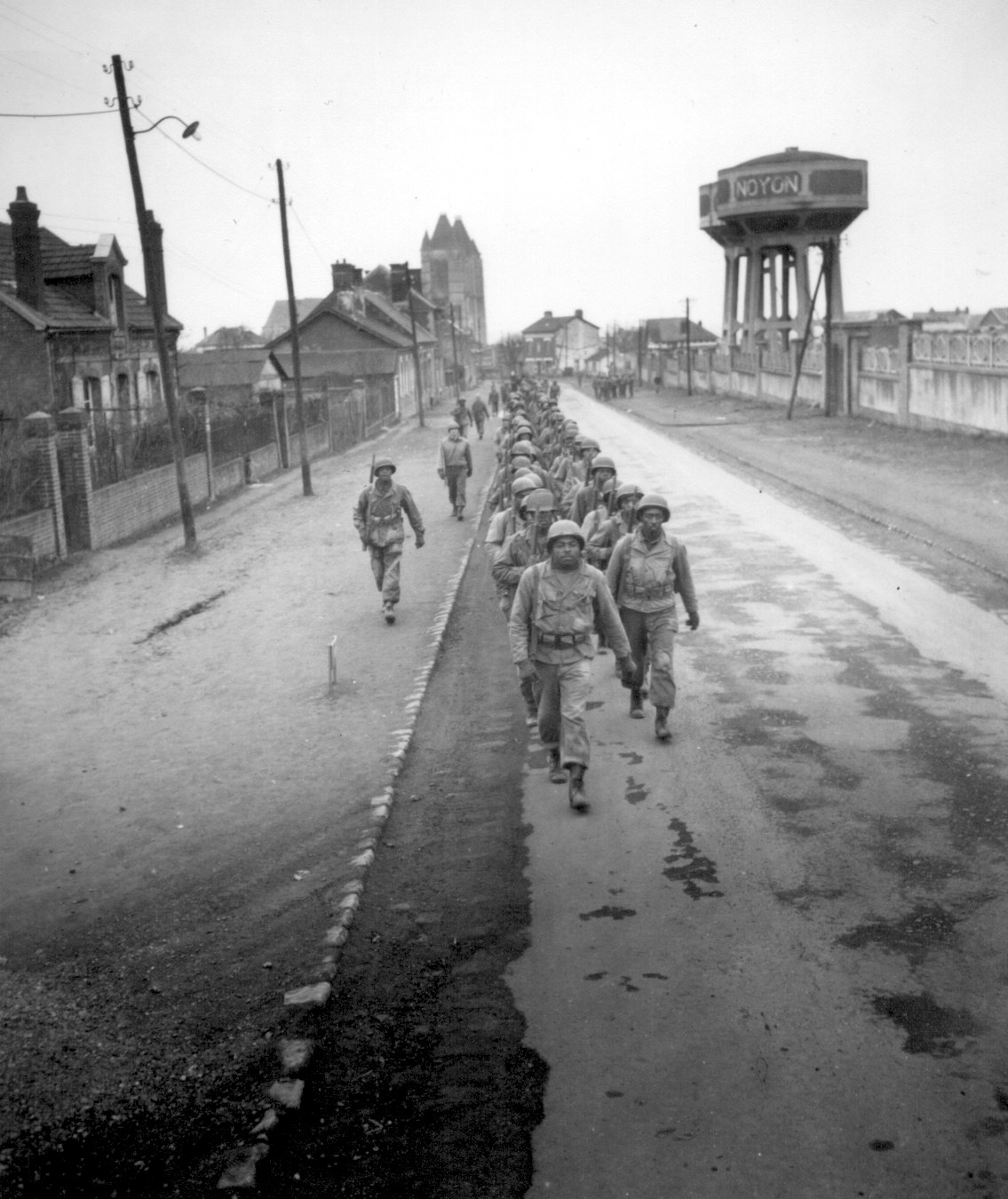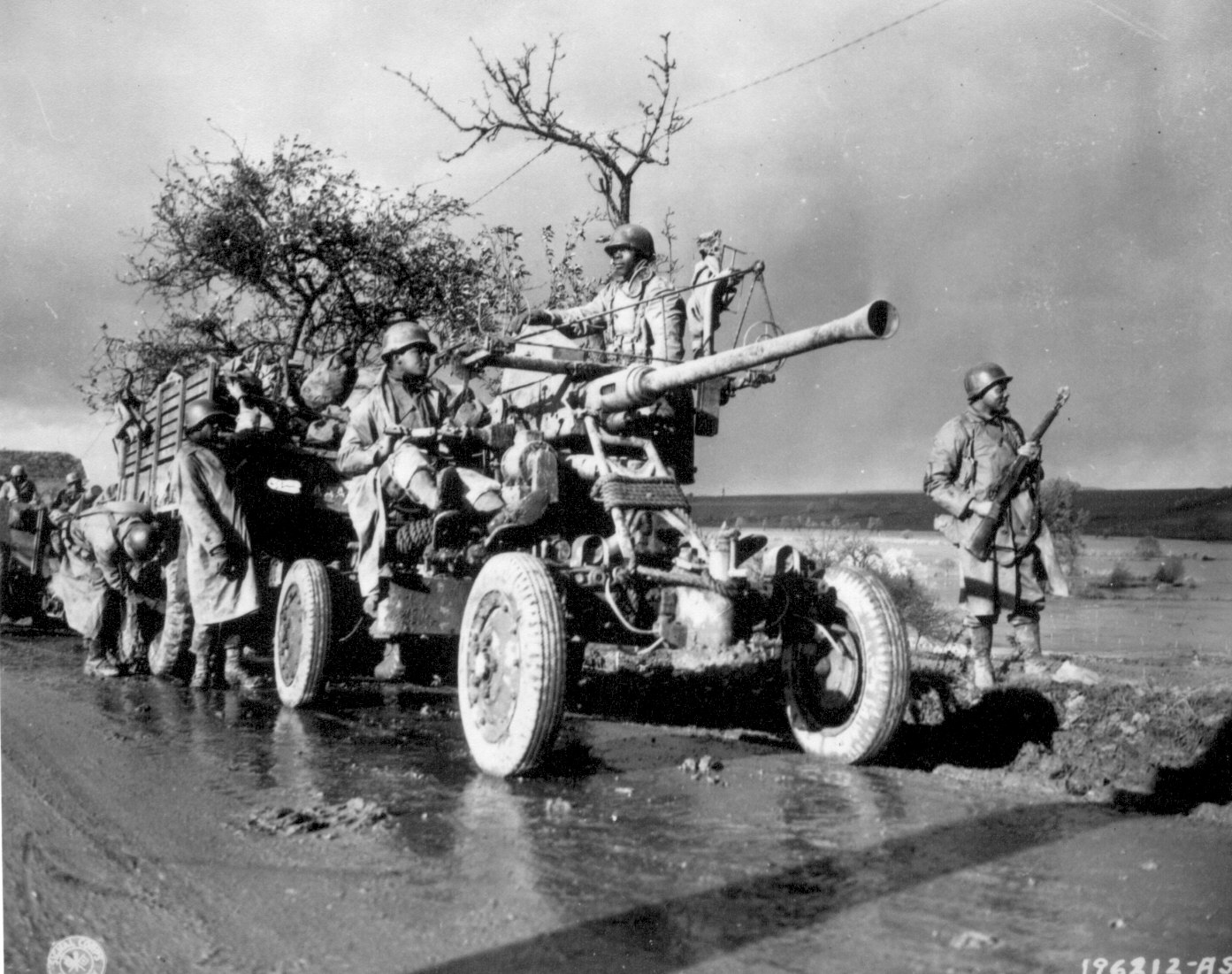Thesis
The Civil War to World War II
“Being an American of dark complexion and some 26 years, these questions flash through my mind: ‘Should I sacrifice my life to live half American?’ ‘Will things be better for the next generation in the peace to follow?’ ‘Would it be demanding too much to demand full citizenship rights in exchange for the sacrificing of my life?’ ‘Is the kind of America I know worth defending?’ ‘Will America be a true and pure democracy after this war?’ ‘Will colored Americans suffer still the indignities that have been heaped upon them in the past?’ These and other questions need answering.”
~ James G. Thompson of Wichita, Kan – “Jan. 31, 1942, the Pittsburgh Courier”

"The 54th Regiment Massachusetts Volunteer Infantry at Battery Wagner, a Confederate fort on Morris Island at Charleston", July 18, 1863, http://www.harriet-tubman.org/african-american-civil-war-soldiers/

"Buffalo Soldiers", History.com, https://www.history.com/topics/westward-expansion/buffalo-soldiers
African Americans in Civil War: Seeds of Segregation
After the Civil War, Congress authorized the creation of permanent colored units, laying the foundation for segregation in the armed services. In 1866, six all-black cavalry and infantry regiments were created.
The Buffalo soldiers were African American soldiers who served on the Western Frontier. They fought in many battles with courage even though they faced blatant racism.

"Harlem Hellfighters from World War I", (Photo Credit: Smithsonian Magzine)
African Americans in World War I: Fighting for Respect
The Supreme Court case of "Plessy v. Ferguson" ruling, allowed states to pass their own segregation-based laws, enabling aggressive implementation of racial segregation policies.
Black soldiers constituted approximately 11% of the Army’s total strength in World War I. African Americans joined the war effort, as they wanted to prove their loyalty, patriotism, fight for respect and equal treatment in the United States.

"Volunteer combat soldiers prepare for a day's training for shipment to veteran units at front lines in Germany." February 28, 1945. Edgren. 111-SC-337901. (african_americans_wwii_026.jpg)

"Members of Battery A, 4520 AA stand by and check their equipment while the convoy takes a break." November 9, 1944. Musae. 111-SC-196212-S. (african_americans_wwii_022.jpg)
African Americans in World War II: Fighting for democracy abroad and at home
Army practices did not allow black officers to command white officers. The Navy used black sailors only as “messmen”.
“You Jim crowed me, Before Hitler rose to power, And you are still Jim crowing me, Right now this very hour.” expressed the sentiment that segregation was very relevant.
~ Langston Hughes, “From Beaumont to Detroit”
The experiences of fighting in World War II to eliminate racism, convinced many of the veterans to continue their struggle for equality when they returned home.
“Hero Abroad, Second Class Citizen at Home”
~ John Seagraves, African-Americans & World War II
"Narrator talks about how some Black Americans got opportunity in the armed services during World War II, but most didn't. He also talks about how some Black Americans learned something while in the army."
https://www.youtube.com/watch?v=MbJ96vchOPc